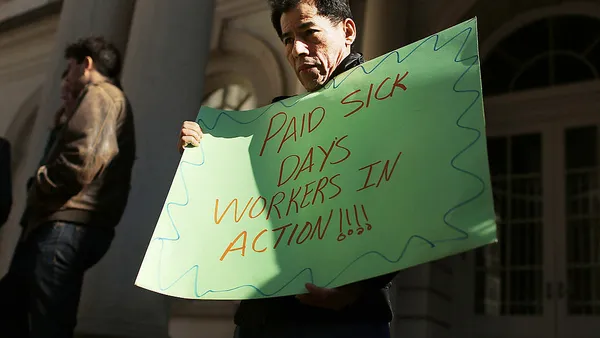Dive Brief:
- Most employers plan to change their long-term health strategies to evolve with the shifting health landscape, yet a new Aon Hewitt survey shows there has been little effort over the past year to move in that direction.
- According to the survey of more than 1,000 companies, one of the biggest drivers is what other employers do. 77% said the actions of their peers have a significant or moderate influence on their own health care strategies, and 59% said so do the actions of major employers in their key geographies
- Surprisingly, 46% said the upcoming 2016 Presidential and Congressional election will have little to no impact on their health strategy, while 49% said it will have some impact. They plan to develop some alternatives tied to different election scenarios.
Dive Insight:
Sue Willette, senior vice president for health at Aon and the survey leader, explained that cost increases have eased over the past few years, reducing the pressure on companies to deviate from the status quo. "Very few companies want to be first in making transformative changes, but many want to be fast followers," she said. Employer action rates will likely be determined by a combination of predicted future costs and bold moves from other employers, particularly within related industries.
Despite reporting they will make few changes in health care strategies for 2015, 87% of employers indicated that increasing participant awareness of and decision making related to health issues is their top priority. However, employer action is still slow. Aon Hewitt's survey showed a small but continued increase in the number of employers offering various health and wellness-related programs.
"Companies that promote a strong culture of health have employees who are happier, less stressed and more engaged, which leads to better productivity and stronger business performance," said Stephanie Pronk, Aon senior vice president and National Health Transformation leader.














